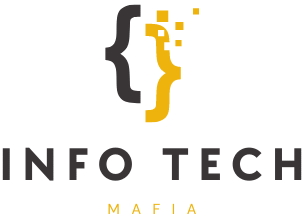Digital Marketing is the practice of promoting products, services, or brands using digital channels such as search engines, social media, websites, email, and mobile apps.
Unlike traditional marketing (newspapers, TV, radio, billboards), digital marketing allows businesses to connect with their audience online in real time.
✅ Why is Digital Marketing Important?
- 🌍 Global Reach – Businesses can reach audiences anywhere in the world.
- 🎯 Targeted Marketing – Ads can be shown to specific groups (age, location, interests).
- 💰 Cost-Effective – Cheaper than TV, print, or offline ads.
- 📊 Measurable Results – Tools like Google Analytics help track performance.
- ⚡ Faster Engagement – Direct interaction with customers through social media, chat, and email.
✅ Types of Digital Marketing
Digital marketing is not just one thing — it includes multiple channels and techniques:
1. Search Engine Optimization (SEO)
- Optimizing websites to rank higher on Google.
- Increases free (organic) traffic.
2. Search Engine Marketing (SEM) / PPC
- Paid ads on Google (e.g., Google Ads).
- Works instantly but requires budget.
3. Content Marketing
- Creating valuable content like blogs, videos, and infographics.
- Helps build trust and authority.
4. Social Media Marketing (SMM)
- Using platforms like Facebook, Instagram, LinkedIn, and Twitter.
- Great for brand awareness and engagement.
5. Email Marketing
- Sending personalized emails to subscribers.
- Useful for nurturing leads and building relationships.
6. Affiliate Marketing
- Promoting other people’s products and earning commission.
7. Influencer Marketing
- Collaborating with influencers to promote products/services.
8. Mobile Marketing
- Targeting customers via SMS, apps, or mobile ads.
✅ Digital Marketing vs Traditional Marketing
| Feature | Digital Marketing | Traditional Marketing |
|---|---|---|
| Reach | Global | Local/Regional |
| Cost | Low to Medium | High |
| Targeting | Specific audience | General audience |
| Tracking | Easy with analytics | Very difficult |
| Interaction | Two-way (real-time) | One-way |
✅ Skills Needed in Digital Marketing
- SEO knowledge
- Content creation & copywriting
- Social media strategy
- Data analytics & reporting
- Paid advertising (Google/Facebook Ads)
✅ Future of Digital Marketing
The future is AI-driven, data-focused, and video-based. With platforms like YouTube, Instagram Reels, and AI tools, digital marketing will continue to evolve and remain the backbone of business growth.
✅ Conclusion
Digital marketing is more than just a buzzword — it’s a necessary skill and strategy for anyone who wants to grow online. Whether you’re a student, business owner, or aspiring marketer, learning digital marketing will open up countless opportunities.
👉 Start small: build a website, create content, learn SEO, and engage on social media. With consistency, digital marketing can help you reach more people, grow your brand, and achieve your goals


